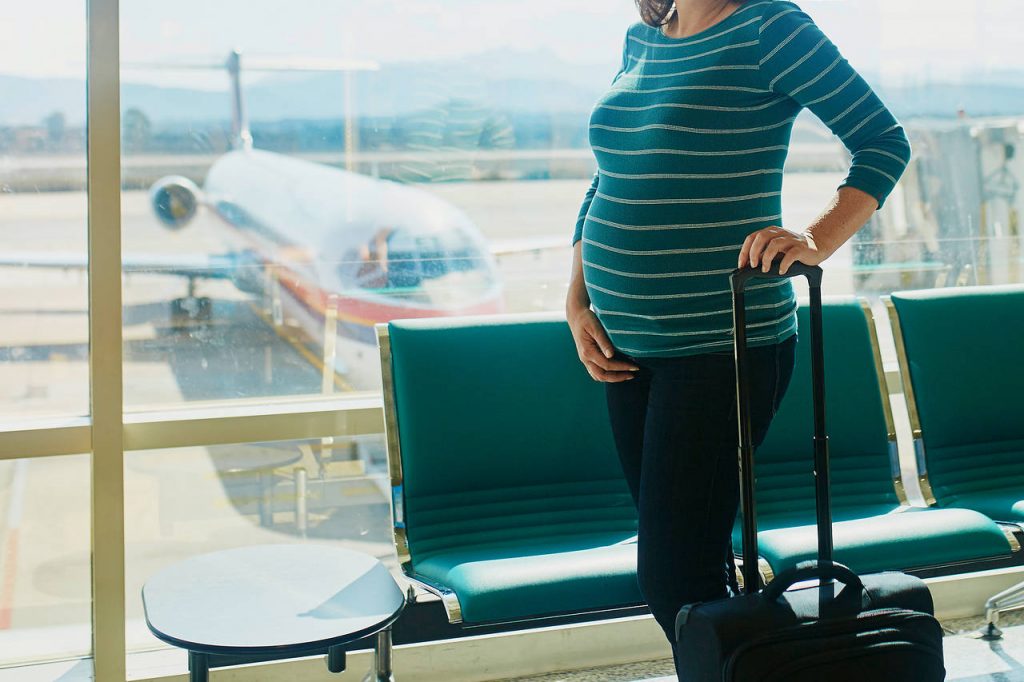A witty way to raise a nationally foreign child of your own
By DERRICK VIKIRU
Birth tourism is not a new phenomenon to many. It has made headlines in the last several years, often as a controversial subject prompting debates by national leaders on many fora, but many people pretty much don’t understand how the practice works. However, as more and more people are finding out about the hidden world of birth tourism, the more the issue is gaining global attention, and, in some sects, it has become hot button. As much as birth tourism could be argued to overlap with medical tourism, it is not. In this scenario, a woman travels to another country for the sole purpose of giving birth in that country so that their new-born could acquire automatic citizenship.
Jus soli

The issue of birth-right citizenship gained global attention in October 2015 after President Donald Trump pushed for its elimination, though it is enshrined in the American Constitution. For a broader understanding, citizenship laws can be classified as jus sanguinis or jus soli; Latin terms alluding to how citizenship is obtained. Jus soli (law of the soil or birth-right citizenship) implies that where one is born decides their citizenship by birth. Many countries follow this law that entitles every child born within their borders to be a native by birth paying little attention to the citizenship or visa status of their parents. Canada and the USA are good examples of this provision. Every child born in the US or Canada automatically becomes a citizen by birth. Other countries clustered here include Mexico, Tanzania, Argentina, Pakistan, Brazil and most of the south American countries.
Birth tourism is completely legal in these countries provided expectant mothers do not circumvent any immigration process. Pregnant women can enter the countries at any stage of their pregnancy. However, most airlines restrict travel to before 36 weeks gestation, but this can be allowed with clearance to fly from a medical doctor. Many people who engage in birth tourism mostly just do not trust their underfunded and overburdened domestic medical system and are typically motivated by a desire to receive high-quality healthcare, or to secure future educational or employment opportunities for their child in the preferred country.
Abusing the system
Under the principle of jus soli — the right of the soil — being born in the above countries confers automatic citizenship. But as more pregnant women arrive each month to give birth, with Canada and USA being the most preferred destinations, native residents are protesting that birth tourists are gaming the system, testing the limits of tolerance and debasing the notion of citizenship. Birth tourism is a multibillion-dollar industry. Media reports indicate that parents pay thousands of dollars to secure spaces in birth tourism hotels abroad. These are places that offer specialised care and residence to mothers who are due to deliver, normally 2 months before the expected delivery date. Data shows that Chinese nationals are the largest participants in this practice. This has been orchestrated by the one-child policy that limits Chinese couples to one child. This prompts the family to seek a different citizenship for the subsequent children in order to circumvent the one-child policy. To discourage birth tourism, countries like Kenya, Australia, France, Germany, Ireland, New Zealand, South Africa, and the United Kingdom have adopted the jus sanguinis, only granting citizenship by birth if at least one parent is a citizen of the country or a legal permanent resident.
Born mid-flight
Another interesting phenomenon of birth tourism is when an individual is born mid-flight or aboard a sea vessel on international or territorial airspace or waters. It is not very common for babies to be born while up in the sky, but it has happened a few dozen times since humans first took flight. Historical data indicates that the first mid-air birth dates to 1929. Due to its rare nature, when a baby is born mid-flight or in international waters, it becomes a newsworthy event as the plane lands/ship docks with one more passenger than it had when it took off. Unlike the normal birth tourism, this phenomenon is not planned for and has in many occurrences raised questions as to whether the child can claim birth-right. Usually, the baby will become a citizen of the same country as the parent. However, these children may at times have claims to a country’s airspace or to the country of which the vessel they were aboard is registered. The 1944 Convention on International Civil Aviation provides that all aircraft have the nationality of the state in which they are registered and may not have multiple nationalities. Thus, the law of the aircraft’s nationality is applicable on the aircraft. However, the nationality laws of a country supersede this provision, thus it is not mandatory that a birth on a country’s aircraft is to be treated as a birth in that country for the purposes of nationality.
The citizenship answer is usually not straightforward and depends on many factors. Although many countries do not grant citizenship based on location of birth, the countries listed earlier do grant birth-right citizenship for being born inside or within their borders including the sky and territorial waters.
Derrick Vikiru is the Sub-editor Management Magazine. Email: dvikiru@kim.ac.ke














